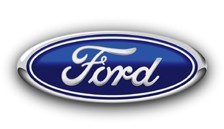AM talks to Ford of Britain managing director and chairman Mark Ovenden.
Author: Jay Nagley
AM: Vauxhall appears to be committed to taking the No.1 position away from you. What is your thinking about market leadership?
Mark Ovenden: Ford is extremely proud to be market leader in cars for 37 years and in commercial vehicles for 48 years. Leadership is not a strategy, it is an outcome. Ford’s retail share has been growing recently and our cars have genuine customer appeal.
AM: You have shown the new Focus, but it won’t be on the road until the end of the year. Isn’t such a long lead time a problem when you have to keep selling the current model?
MO: We believe that it is now more efficient to tell people a new car is coming. The days when you could keep new models secret are long gone. There are no huge marketing costs associated with selling the current model through 2014, and our website can monitor what specifications people are looking at for the new model. That is a big advantage when it comes to planning the model mix.
AM: The next generation Ka is a five door model, when most of the action in the A segment (or sub B in Ford parlance) seems to be around funky three doors like the Adam and the 500. Has the Ka been compromised by having to appeal in Asia?
MO: It is true that Asia is going to be very important market for the Ka, but there are two other factors. Firstly, the market for funky three door models in sub-B is starting to look quite crowded. Secondly, we have the Fiesta three door which competes very successfully for that sort of buyer.
AM: A lot of European manufacturers are now very orientated towards small cars, as sales of their larger models have faded. How can Ford avoid that fate?
MO: Ford volume heartland is in the B (supermini) and C (small family) segments, but the Ford brand can be stretched upwards by future models such as the Vignale, Mustang and Edge. Our share of J segment (crossover and SUV) is only 3.5% and we can grow that with the Ecosport and Edge.
AM: Talking of Mustang, what is the value of bringing it to the UK? Other manufacturers’ attempts to bring in halo models like the Monaro seem to have met with mixed success.
MO: There are a number of compelling reasons for bringing in the Mustang. It is Ford’s most iconic product and is celebrating its 50th anniversary – in the era of One Ford, it would be very odd not to make the Mustang a global product.
Also it has huge awareness in Europe – there is a Mustang owners club for a car that has never been officially sold here. I agree that halo cars cannot help weak models, but the Fiesta and Focus are hardly weak. We see the Mustang as the cherry on the cake. However, it will be a demand-led product – we will satisfy demand, but we will not be forcing the market for Mustangs in the UK.
AM: You clearly hope Mustang will boost the image of Ford – where do you think Ford’s image is now?
MO: Our own research shows it is steadily improving. The German premium brands are clearly out in front, but our image is more positive in the UK than the non-German mainstream brands, and we want to keep building on that.
AM: How will that be achieved?
MO: If you think of Audi, it took 20 years from the 1970s to turn it into a genuine premium brand. The one unique feature it had through the 1980s was Quattro 4wd technology, which gave it something to build on. We see our reputation for ride and handling in the same light.
AM: Turning to electric vehicles, you will offer an electric Focus, but you seem to have a watching brief on electric vehicles – you don’t look like a pioneer.
MO: Yes, a watching brief is the correct way of describing it. We offer hybrids and battery electric vehicles to our customers, using existing models. We don’t want to commit a factory to building a unique model for the electric vehicle market.
AM: Finally, looking at commercial vehicles, the naming strategy seems to confuse some people. There are now four vehicles with a Transit badge – Transit Courier, Transit Connect, Transit Custom and Transit. What is the thinking behind that?
MO: “Transit” is a fantastically strong brand. We have greatly improved our smaller commercial vehicles and it made sense to bring them into the Transit family, with “Ford Transit” at the top.
AM: So is it like Range Rover – Range Rover Evoque, then Range Rover Sport, with the original Range Rover at the top?
MO: Exactly
AM: Looking at the wider perspective, we went into the financial crisis with over-capacity in Europe. With demand having slumped since, just how bad is over-capacity now across the industry?
MO: We think overall over-capacity is 20% - 25%, but there is another negative factor. Before the crisis, quite a lot of excess capacity could be directed to Russia. That is no longer the case, as domestic production takes a larger share of Russian sales. However, Ford has aggressively addressed its own capacity issues.
AM: What is Ford’s position on free trade agreements – you don’t appear to have welcomed all of them wholeheartedly?
MO: Ford absolutely advocates free trade, but it needs to be free. There needs to be no currency manipulation and no non-tariff barriers, such as tax audits of dealers with foreign brands, or obscure regulations about vehicle dimensions.















Login to comment
Comments
No comments have been made yet.